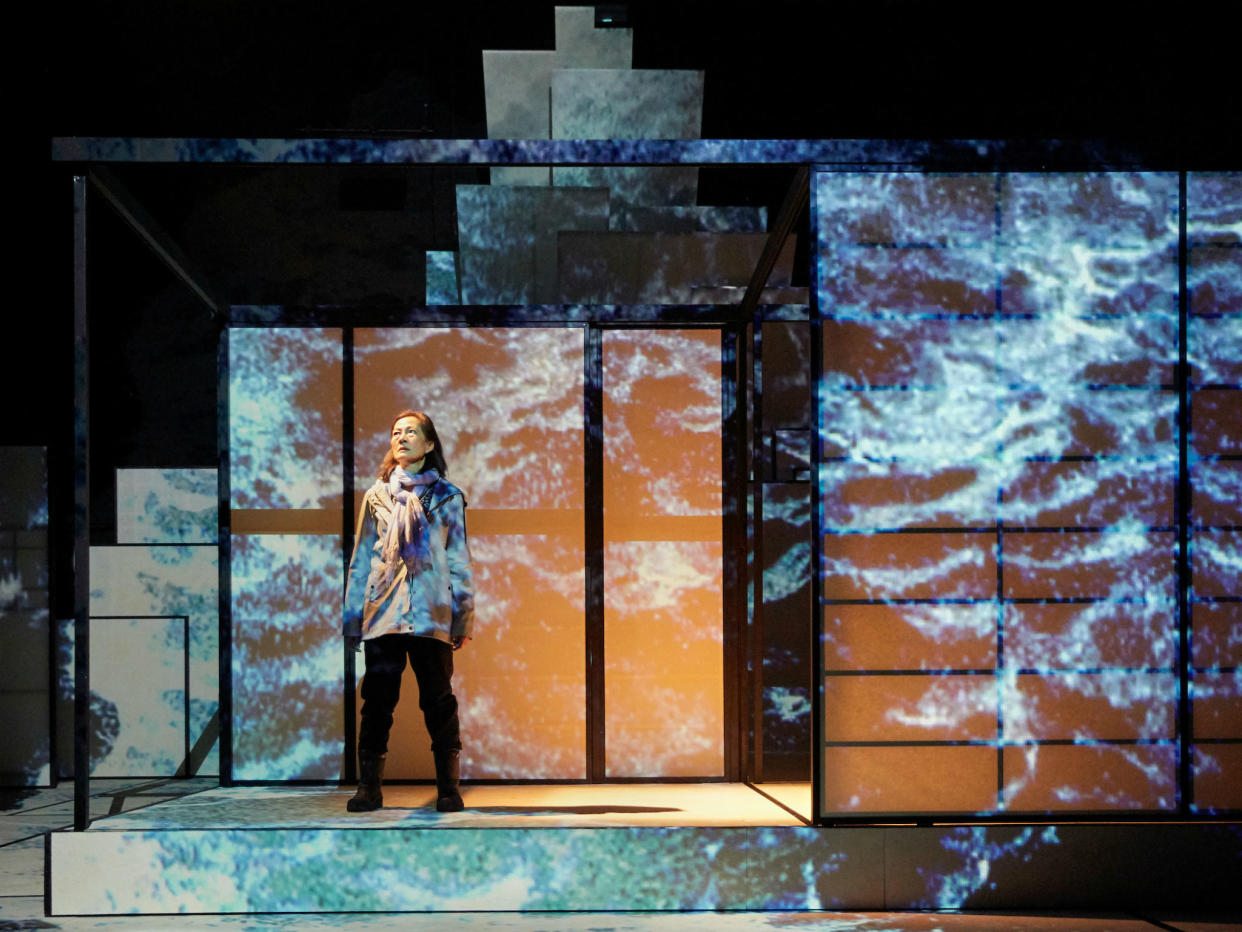The Great Wave, National Theatre, London, review: It sensitively intertwines the intimacies of private pain and the pressures of international politics

Premiered in this engrossing co-production with the Tricycle Theatre, Francis Turnly's epic thriller unfolds in Japan and North Korea. It begins in 1979 with the disappearance of seventeen-year-old Hanako (Kirsty Rider) during a storm. At first, the Japanese authorities assume the girl has been murdered, then that she was drowned by the great wave. Unwilling to accept that she is dead, her devastated sister Reiko and their mother Etsuko (Kae Alexander and Rosalind Chao) spend the next twenty-five years searching for answers.
In parallel scenes, we see Hanako's actual fate. Turnly's play is, in part, based on real-life stories of Japanese civilians being abducted to North Korea. So at the same as we witness her mother and sister gradually stirred to activism by the mystery of her disappearance, we watch the systematic attempts to reconstruct Hanako as a devout North Korean and her shifting relationship with the trainee spy, Jung Sun (Tuyen Do), whom she is training to pass as unimpeachably Japanese.
The play sensitively intertwines the intimacies of private pain and the pressures of international politics. The Japanese foreign office obstructs the efforts of the families of the abducted, arguing that the country cannot afford to antagonise North Korea, and wary about country's war-crimes, such as the so-called “comfort-women” forced by the Imperial Japanese Army to work as sex-slaves in the occupied territories, whom Hanako is now hearing about for the first time. There is never any glib attempt at false equivalence here. Over the quarter century depicted, Kirsty Rider ages very movingly, as Hanako's memories of her original family are complicated by the demands of the family foisted on her by a protective member of the regime – an arranged marriage with an orphan of tainted “hostile” lineage by whom she has a daughter.
Questions of identity, of siblinghood and personal responsibility are raised with speed and acuity in Indhu Rubasinhgham's remarkably fluent and beautifully acted production. We're whisked from location to location by Tom Piper's excellent rotating paper design, with swirling videos of waves provided by Luke Halls. Excellent drama, begun three years ago and now granted an acute degree of topicality.
Until 14 April (nationaltheatre.org.uk)


